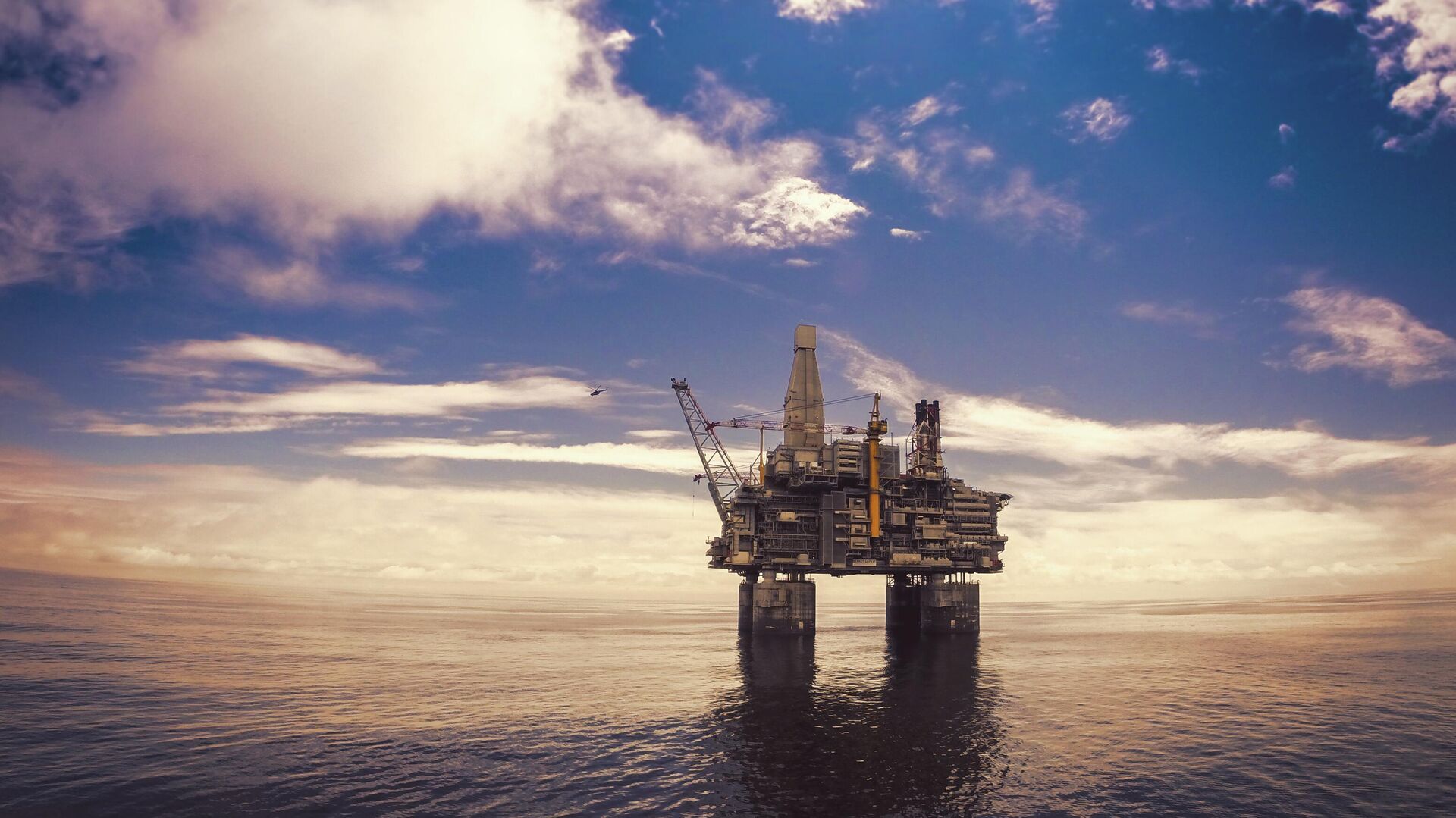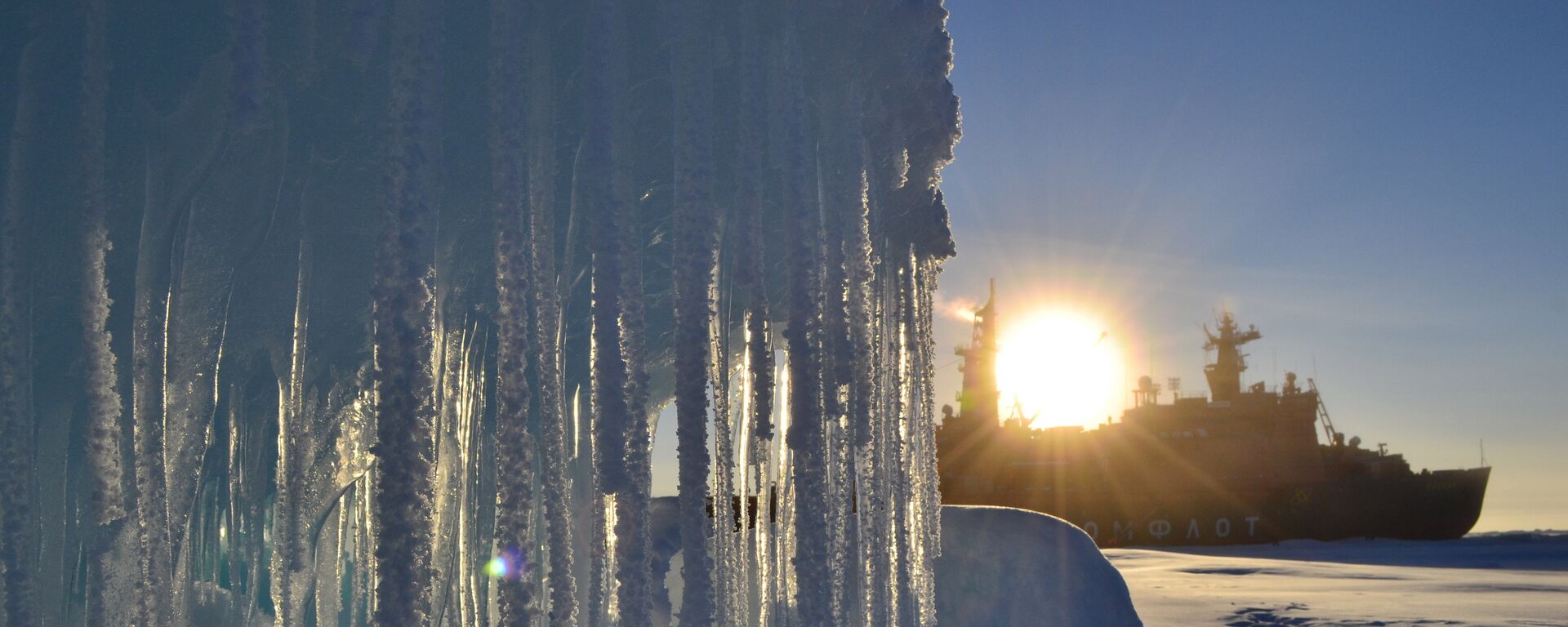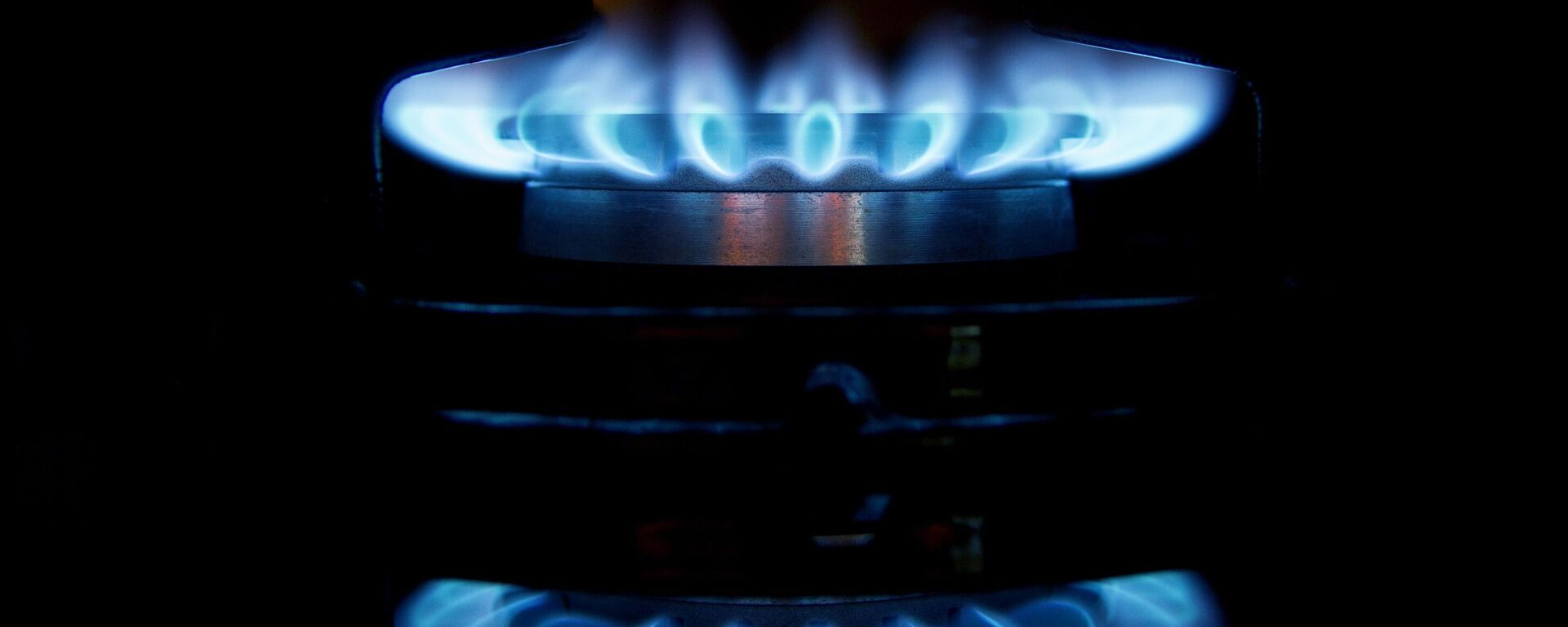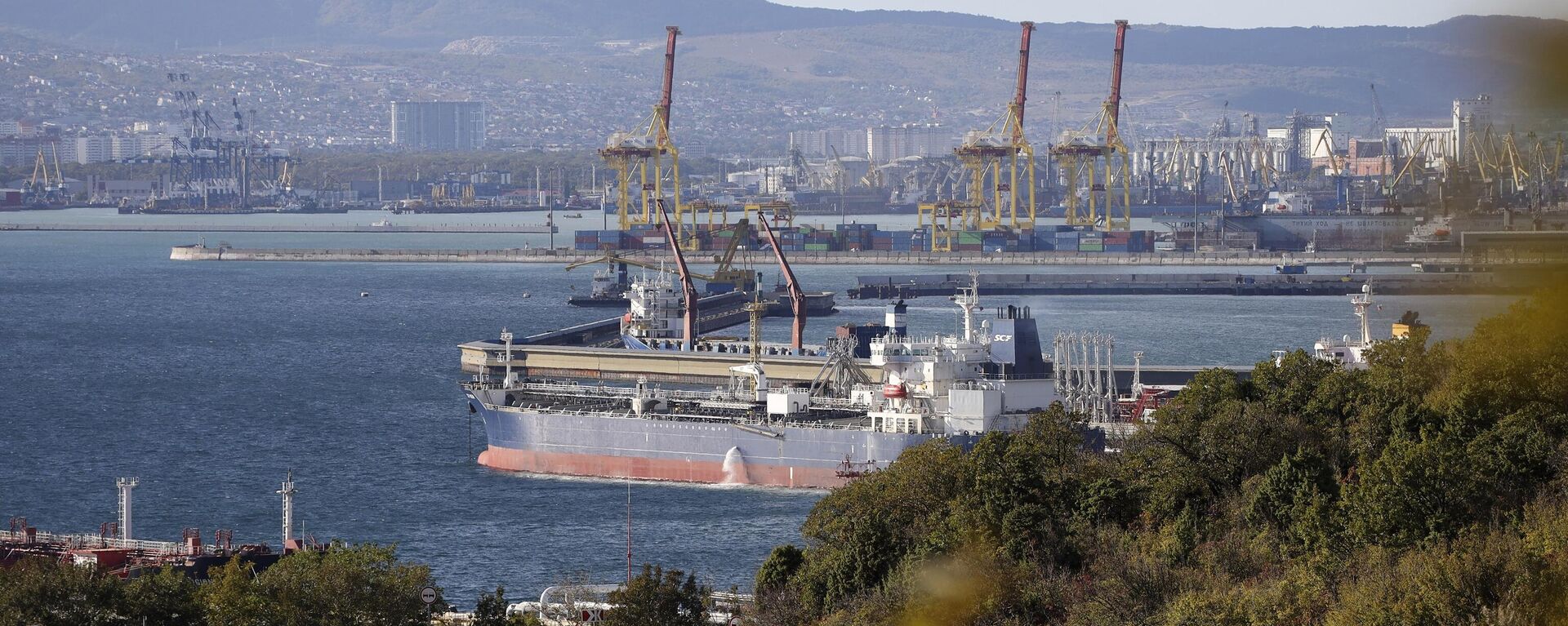Enough is Enough: Why West's Price-Capping is Wake-Up Call for Developing Countries

CC BY 3.0 / /
Subscribe
On December 19, EU governments agreed on a new price cap on natural gas. The correction mechanism would impose a Dutch Title Transfer Facility (TTF) price ceiling of €180 ($191) per megawatt hour from February 15, 2023. The move was preceded by the decision of the G7, the EU, and Australia to cap prices of Russian oil and petroleum products.
On Monday, the EU introduced a new price cap on natural gas starting from mid-February 2023. The mechanism will be activated if two conditions are met.
First, the price of month-ahead natural gas futures contracts on the Dutch Title Transfer Facility (TTF) should exceed €180/MWh for three working days. Second, the month-ahead TTF price for liquefied natural gas (LNG) must also be €35 ($37) higher than the reference price for the liquefied fuel in global markets for the same three working days. The price cap is intended to reduce the likelihood of price spikes amid the unfolding energy crunch in Europe.
Prior to that, the Group of Seven (G7), the EU, and Australia introduced a $60 per barrel cap on Russian oil. Unlike the G7-led measure, the European mechanism appears to target all gas producers, including LNG giants from Qatar and the US. Earlier this year, EU member states repeatedly complained about skyrocketing price tags of American LNG.
Since the beginning of Russia's special operation in Ukraine in February 2022, the EU has substantially decreased its consumption of Russian natural gas by replacing it with LNG from the US and other producers, including the Middle East and Africa.
In response to the EU's move, Goldman Sachs, a New York-headquartered multinational investment bank, warned about the risk of market disruption. For its part, the US mainstream media hinted that LNG cargoes could favor Asia if prices there are higher than the caps in the EU.
Besides possible economic repercussions, price-capping has set a dangerous precedent, according to some observers. Major industrialized importers of hydrocarbons are not only dictating fuel prices, but are using caps to curb the economic development of targeted nations.
Who could guarantee that the G7 or the EU would not impose price caps on other commodities thus crippling other countries' ability to get a fair price for their goods?
"The price cap on Russian oil by the West is short-sighted," Amrita Dhillon, the founding editor of The Kootneeti, a New Delhi-based publication, told Sputnik. "India does not back the G7 decision to support the oil cap on Russia. Being one of the world’s largest consumer economies, India should be securing its energy interests first. In my opinion, the West tries to put pressure on the governments through its citizens by choking their essentials. And I would say the rise of China and its clash with other big economies is directly linked to this 'cornering' strategy by the 'nations at the helm' of the world order."
West is Weaponizing Its Advantages
In fact, the collective West holds several advantages which allow it to impose its will on other nations: first, most dominant reserve currencies belong to the West; second, Western corporations maintain monopolies in certain economic sectors.
Dominant Reserve Currencies. Following the beginning of Moscow's operation to demilitarize and de-Nazify Ukraine, the G7 restricted Russia's access to their currencies and froze its Central Bank's foreign exchange reserves. According to international observers, this move sent a chilling signal to other nations.
Apparently therefore, Saudi Arabia and some other Middle Eastern nations have started to increasingly use the Chinese yuan to settle oil and gas accounts, alongside the dollar.
On December 21, the Russian Ministry of Foreign Affairs signaled that Russia and India are set to abandon the dollar and the euro in mutual trade.
Western Monopolies. "Over 95% of the maritime insurance and maritime clearances for vessels of cargo freighters are covered by European nations, especially the United Kingdom," Dhillon pointed out.
Obviously, that emboldened the G7, the EU, and Australia to proceed with the price-capping initiative, as they threaten other nations with rejecting certain insurance and maritime services unless they bow to the new price cap on Russian oil.
"The dominance of European nations over maritime insurance and clearances makes it even harder for non-EU and non-NATO countries to load Russian cargo as they too might face similar sanctions," the Indian scholar said.

9 December 2022, 12:30 GMT
In response, Russia warned its consumers that the cap clearly violates the rules and principles of the free market and that it won't sell crude to those implementing the G7's measure. At the same time, Moscow started to beef up its own tanker fleet and instrumentalized its national insurance companies to cover maritime transportation of its crude.
"It should serve as a wake-up call for developing nations," stressed Dhillon. "Dependence on Western companies for freight and cargo insurance as well as their dominance of the sea channels of communication demonstrates their ability to impose their will should circumstances become difficult."
Yet another sector almost totally monopolized by the West is the production of advanced semiconductors, which are indispensable for super-computing and artificial intelligence.
"Governments view distribution networks in relation to politics, whereas entrepreneurs view them in terms of performance," said Dhillon. "States across both coasts of the Asia-Pacific have long viewed production lines as instruments for pursuing their national agenda. Government parties in Asian nations, from Singapore to Taipei, saw joining US-centric production processes as a tactic to not only attract gainful employment, but also to raise economic significance to Americans and the faith in the US to ensure their stability in the event of a catastrophe."
Even though the Chinese and the American economies have long been intertwined, at some point Washington decided to decouple and hinder Beijing's development, seeing it as a dangerous competitor.
Earlier this year, the Biden administration resorted to sweeping sanctions aimed at completely severing China from the technology in order to curb the development of the Asian giant. A similar ban on electronic components and hi-tech products was imposed by the West on Russia in the wake of its special military op.
The problem is that China is one of the leading producers of rare earth metals, which are used in everything from batteries to smartphones, while Russia is one of the world’s biggest suppliers of "noble" gases used to make semiconductors. In June 2022, the US press expressed concerns about Moscow limiting exports of inert gases, including neon, argon, and helium to "unfriendly" countries. Developing nations are increasingly resisting the West's attempts to continue its unipolar moment.
Developing Countries Don’t Want to Participate in West's World Wars
The West is no longer calling the shots on the international arena, as developing states are embracing a multi-polar approach, according to Dhillon.
Earlier this month, Indian Foreign Minister S. Jaishankar dismissed his German counterpart Annalena Baerbock's attempt to lecture India on its energy deals with Russia.
"In this multilateral world, governments need to understand that gone are the days when Europe’s wars were the world’s wars," Dhillon said. "During the First and Second World Wars, countries like India lost a lot. Developing countries lost too many years in conflict during the Cold War. And why India or any other developing country which is having its own set of challenges should kneel down to any side?"
"India is the Third Pole in itself, why should it be taking a side? It is not part of any formal alliance but a pole in itself which is joined by many neutral countries that are aspiring for peace and settlement through diplomatic negotiations," the Indian scholar highlighted.
According to the Kootneeti editor, India is buying Russia's hydrocarbons with a sweet discount and does not need the West's meddling in its trade relations with Moscow. Furthermore, India and Russia have maintained mutually beneficial cooperation for decades in various economic spheres starting from military-technical collaboration to scientific research. It's unlikely that New Delhi would sacrifice this abruptly for the sake of the West's struggle for dominance.
Before dictating policies to the world, Western countries need to look in their own backyard and solve their own domestic problems in the first place, according to Dhillon.
"And when we talk about developing countries, they are already on the trajectory to make decisions in accordance with their own interests," the Indian scholar concluded.




